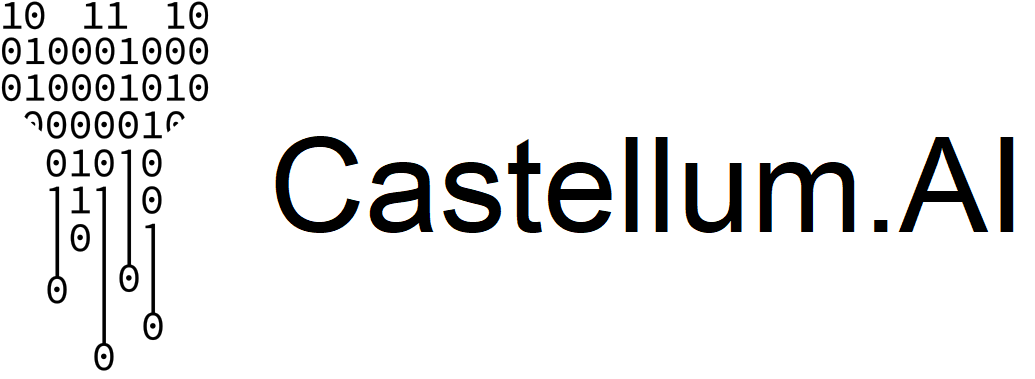
Americas Regional Sanctions Guide
The Americas present a strange case because out of the 35 countries comprising North and South America, only 3 countries publish autonomous sanctions lists: Canada, the United States, and Argentina. The US Office of Foreign Assets Control Specially Designated Nationals list (US OFAC SDN) comes in with a high score of 93%, Argentina’s Registry of Persons and Entities Linked to acts of Terrorism and their Financing (RePET) scores a relatively high 76% and surprisingly, Canada’s Special Economic Measures Act (SEMA) sanctions come close to failing at 67% due to a minimalist approach to the amount of data provided and low data quality.
The United States
US OFAC SDN sanctions dominate the global sanctions landscape due to the importance of the US financial system, but US OFAC SDN sanctions also scored a 93% on our index, largely due to the high quality of data, ease of use, the associated search tool and ease of access to said data. At 93%, US OFAC SDN is the highest ranked national sanctions list in the world. The US OFAC SDN list excels when it comes to data integrity, with a detailed and expansive schema. For example, the US OFAC SDN list includes multiple unique ID fields which create a comprehensive summary for each subject. While many national sanctions lists include alias and/or location information under a generic ID or additional information field, the US OFAC SDN list has individual location and alias ID fields pertaining to such relevant data. US OFAC SDN sanction data is available in multiple file types (including XML and CSV), including human-readable data formats in addition to formats easily ingested by software systems.
Want to see the data behind the ratings?
Additionally, OFAC provides a built in sanctions search tool. While it mostly generates false positives, it is easy to use and performs better than most other countries' sanctions search systems. The biggest weakness with the US OFAC SDN list is that despite the enormous amount of guidance, press releases and FAQs provided by the sanctioning office, OFAC does not directly link sanctions to press releases. OFAC has the second largest sanctions list in the world at over 10,000 names listed (behind Russia’s Rosfinmonitoring sanctions), and without an easy way to connect a potential match to a press release or designation reason, analysts are often left at a loss about why exactly someone is sanctioned by OFAC. In this criteria, OFAC lags behind not just sanctions stalwarts like Australia, the EU, France and the United Kingdom, but also behind Kyrgyzstan, Malaysia, and Vietnam.
The majority of countries globally implement sanctions determined by supranational organizations such as the United Nations. Only 21% of countries utilize autonomous sanctions lists, which are specifically geared towards national security concerns and are independent from global or regional sanctions lists such as the UN and EU. The quality of autonomous sanctions lists vary widely across regions and countries, contributing to the extensive range of ratings for sanctions lists globally.
Canada
Despite close cooperation with the US on sanctions policy, the Canada SEMA sanctions list scored only 67%. Among multiple flaws, the biggest is the lack of unique IDs ascribed to each sanctions designation that can be used to establish a true positive result when screening individuals and entities. Further, the Canada SEMA list does not provide places of birth, ID numbers or addresses, which significantly increases the probability of encountering a false positive. Data integrity is further lacking within Canada’s list given insufficient data organization, as ID fields are often not limited to one field per entry. Multiple aliases are oftentimes crammed into one ID field, which creates a disorderly structure that again, increases false positives.
Search global sanctions for free
Another major flaw within the Canadian sanctions list is accessibility. Canada SEMA’s list is not downloadable in multiple formats, as it is only downloadable in PDF and XML, which can potentially cause issues for users looking to access Canada’s watchlist in CSV format. The Canada SEMA list also lacks email notifications. While most major sanctions lists (such as the US OFAC SDN list and EU consolidated sanctions list) offer users email notifications regarding updates to their respective sanctions lists, SEMA does not provide a means to automatically notify the public or private sector of updates to the SEMA sanctions list. Additionally, Canada SEMA list also lacks explanations as to why an entry is designated, which informs the public why a particular subject is sanctioned. The lack of explanation for each data entry makes the Canada SEMA list extremely difficult for users to analyze, and is a symptom of the overall lack of guidance provided by Canada’s government in relation to sanctions.
Argentina: The Only South American Source
Argentina’s national sanctions list, the Registry of Persons and Entities Linked to acts of Terrorism and their Financing, is the sole national sanctions list available from a South American country. The Argentina RePET list scored an overall 76%, marking it as a relatively high quality sanctions list. The Argentinian RePET list particularly excels within the data integrity category, as the RePET list includes an extensive and organized schema. The RePET list limits ID fields to one entry per field and also includes standardized data entries, which creates an overall orderly and comprehensive watchlist. Furthermore, the Argentinian list utilizes the UN sanctions committee’s data schema, which helps to establish true positives when searching for sanctioned subjects.
The RePET list falls short when it comes to data delivery and accessibility. While the Argentinian list does include a watchlist search tool with a straightforward interface, there are limited options for advanced search which reflects poorly upon the search tool’s overall functionality. Also, the RePET list, like the Canada SEMA list, lacks email notifications for users interested in sanctions updates and news, which again reflects upon an overall lack of accessibility and dedication to public engagement. Furthermore, despite there being explanations regarding why each subject is sanctioned, most of these descriptions are references to the UN sanctions list instead of unique descriptions in themselves. Overall, the Argentinian RePET list has extremely high quality data structure but falters when regarding deliverability to the public.
Why Is Argentina the Only Latin American Country with a Sanctions List?
Argentina has placed special attention upon the watchlististing of terrorist organizations following the 1994 bombing of the Jewish Community Center Asociación Mutual Israelita Argentina (AMIA) in Buenos Aires, the deadliest terrorist attack in Argentina’s history. The attack spurred the creation of the RePET sanctions list, and following the 25th anniversary of the AMIA bombing, Argentina became the first country in Latin America to designate Hezbollah as a terrorist organisation. In this effort, Argentina has received a significant amount of support from the United States, with a bilateral dialogue between US and Argentine counterparts on illicit finance and visits from U.S. leaders in countering illicit finance.
What About the Other 32 Countries in the Americas?
The overwhelming majority of countries globally do not have sanctions programs. Instead, they rely on supranational organizations, primarily the United Nations and European Union, but also The Arab League and Economic Community of West African States (ECOWAS) to come up with sanctions, which they then adopt. For example, Bulgaria, Germany and Italy do not have a national sanctions list, but they impose sanctions levied by the European Union and actively partake in the EU’s sanctions process. For Latin America, no such regional sanctions body exists, but all Latin American countries follow and impose United Nations sanctions. Continued disagreement at the UN, however, means that few new sanctions are being imposed by countries that do not have their own sanctions programs, limiting their ability to respond crises like Russia’s invasion of Ukraine, the military coup in Myanmar, and repression in Venezuela.
About Castellum.AI
Castellum.AI obtains global sanctions information from primary sources, and then proceeds to standardize, clean and enrich the data, extracting key information like IDs and addresses from text blobs. Castellum.AI enriches as many as fifteen separate items per entry. This analysis is based on the enriched primary source data that populates our database. The database consists of over 1,000 watchlists, covering over 200 countries and eight different categories (sanctions, export control, law enforcement most wanted, contract debarment, politically exposed persons, regulatory enforcement, delisted, and elevated risk). Castellum.AI checks for watchlist updates every five minutes directly from issuing authorities.
Stay ahead of the headlines
We have you covered. Sign up to receive data alerts and original insights from Castellum.AI
